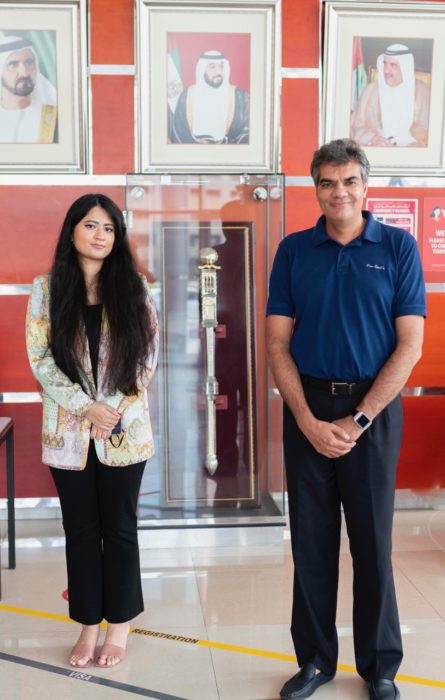CUD research reveals impact of COVID-19 on tourists’ luxury spending
Travellers lose appetite for premium products as pandemic changes consumer attitudes
Research undertaken by a team from Canadian University Dubai (CUD) has revealed the dramatic impact of COVID-19 on luxury spending among tourists travelling into and out of Dubai. The study demonstrates a notable retreat from the purchase of premium goods as consumers reacted to international travel restrictions and concerns about long-term financial security.

Conducted by MBA marketing graduate Anam Syed, in collaboration with Associate Professor, Dr. Farooq Haq, the study is the subject of a research paper entitled, “The Impact of COVD-19 on Luxury Consumption in Tourism to and from Dubai”. The paper has been accepted for publication in the International Journal of Hospitality & Tourism Systems (IJHTS), Special Issue Edition on COVID-19 (Pandemic): Challenges, Impacts and Planning Ahead for Hospitality & Tourism.
Explaining the findings, Anam said, “COVID-19 has redefined the luxury shopping market. Naturally, the segment of the industry that is dependent upon tourist shoppers has been impacted by worldwide travel restrictions to contain the spread of the virus. For most of our research respondents, working from home due to social distancing also led to fewer opportunities to spend money.
“Moreover, the re-opening of retail outlets and lifting of movement restrictions have introduced a new normal. Being forced under lockdown has allowed consumers to re-think their spending patterns. The crisis brought a fundamental shift in how and what consumers buy, with purchasing centred towards basic needs and more conscious and accessible outlets, like e-commerce platforms.”
In terms of purchasing power, the economic fallout of the pandemic has taken its toll, according to the research. Anam continued, “Experiencing financial uncertainty has changed consumer attitudes, behaviour and purchasing habits for luxury brands. Goods that require greater financial commitment, like smartphones, perfumes, jewellery, and handbags, were found to be highly desirable, but regarded as unnecessary to survive the pandemic, when many people were simply grateful for having a job to support their family.”
The research also reveals how consumer conscience impacted spending on luxury goods. Anam explained, “We found that several buyers lost their appetite for luxury goods because of the health crisis that was going on around them, with one respondent describing it as ‘heartless’ to be thinking of shopping for expensive products when some people were uncertain whether they would live.”
Nevertheless, it wasn’t all bad news for luxury brands, as the research shows that some were able to quickly pivot in response to the restrictions brought about by the pandemic. Anam revealed, “COVID-19 plunged luxury brands into digital sales to offset the tremendous losses suffered. They had to design experiences around the changing consumer lifestyle and the uptake of e-commerce. This has provided a valuable lesson for the future and luxury brands should now place their digital engagement strategy at the centre of their business model and anticipate shifts in consumer sentiment and purchasing decisions.”
Research supervisor and co-author of the paper, Dr. Haq, said, “Anam took on the challenge to learn new skills in empirical interviewing, data analysis, and qualitative writing, in order to make an important contribution to this logistically challenging study. It is rare for new graduates to see their work feature in a Scopus listed journal and the publication of this paper in the IJHTS is recognition of its valuable contribution to academic literature in the field.”
